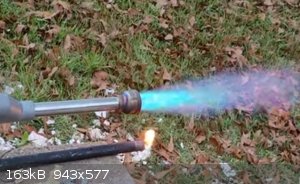j_sum1
Administrator
       
Posts: 6320
Registered: 4-10-2014
Location: At home
Member Is Offline
Mood: Most of the ducks are in a row
|
|
Disposal of tar and organic waste
I am sure that there have been threads that have mentioned this, but I do not see it coming up often and I thought that a single location might be
good for this information. This is obviously a problem that comes up regularly and I would really love to know how others handle waste from organic
reactions responsibly.
So, how do members here handle waste from solvent purifications and OC reactions.
My procedure thus far has been either
(a) incinerate
(b) dispose with a large amount of paper or sawdust or similar. Allow to evaporate and then throw out with the trash.
However, I have generally been dealing with small quantities. That is 50mL or less. Right now I am accumulating volumes approaching a litre
including some tarry type substances. I am sure there are better methods than what I am doing at the moment.
|
|
|
paulll
Hazard to Others
  
Posts: 112
Registered: 1-5-2018
Member Is Offline
Mood: It's fine. Really.
|
|
The atmosphere is nature's bin...
Would your waste be amenable to the,"reduce it, pot it in latex paint and bury it in the middle of nowhere," method?
|
|
|
B(a)P
International Hazard
    
Posts: 1139
Registered: 29-9-2019
Member Is Offline
Mood: Festive
|
|
Burying it is not a responsible practice.
j_sum1 mix it with a solvent like turps or a little kerosene and put it in a paint tin. You can drop off up to 20 L at your local landfill facility
for free. It is a service to try and motivate people to do the right thing with their liquid waste. It is primarily aimed at paints, but they take
thinners as well hence my suggestion of dissolving it up in a common and inexpensive solvent.
Adsorbing small amounts into absorbent material and putting it in general waste is also acceptable for your particular local landfill. This may not be
true for all landfills.
|
|
|
Rainwater
National Hazard
   
Posts: 919
Registered: 22-12-2021
Member Is Offline
Mood: indisposition to activity
|
|
When new to chemistry I was frustrated by what to do with the left overs of a reaction. Like i just read 3 pages of warning, got gloves, glasses and a
face shield, paid 10 bucks for reagents and spent an hour to watch this liquid go from red to blue and now the instructions say just pore it down the
drain. You ba@/!rd
I try to plan my reactions, so a minimal amount of waste is made. The byproducts generated are often useful for other things I do regularly. And I
have become obsessed with being able to return my byproducts into reagents. (Time is cheap for me; chemicals are expensive, but mostly, it helps me
explore different reactions and techniques )
Fire is a wonderful tool. Fortunately, most organics will decompose when heated, so the leftovers from organic reactions can be reduced. Just be
careful of any gas products which may be toxic/polluted.
I use distillation to recover my solvent and reduce volume. Then a tlc plate to check for contamination.
I saving up to try my hand a column chromatography. Some of the solvents are expensive and dont store well for long periods.
Nothing is ever truly wasted, except for that gunk clogging that dude's condenser. yuk
It just comes down to how much time/effort is required and whether is it cost-effective for my situation
And if all else fails. I HAVE HER (2000 btu of FIRE)

"You can't do that" - challenge accepted
|
|
|